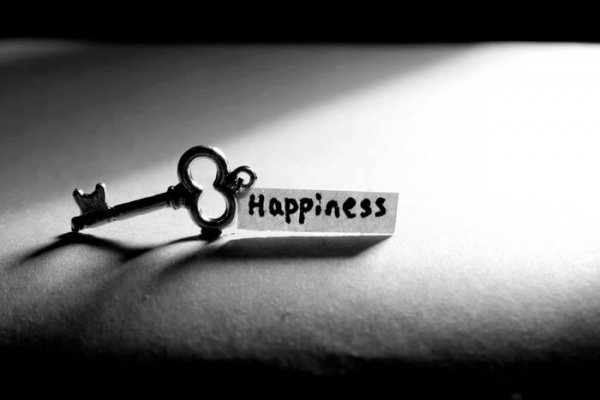Happiness is Knowing You Aren't Lost


Written and verified by the psychologist Sergio De Dios González
How many times have you asked yourself “am I really happy?” Why do you feel lost and unsure about where you should be headed? Finding meaning in life is part of the key to happiness.
There is an old discussion in the world of philosophy and psychology about what it means to be happy in everyday life. The question has evolved into a discussion about whether happiness exists at all.
Is it fleeting, or can you be truly happy? As always, the discussion has a lot to do with the question of what it is that we call happiness.
The answer to that question determines our well-being. Whether it becomes something impossible, something that passes, or something you can reach.
In recent years, researchers have carried out different studies about the concept of happiness. The results of the studies lead us to different conclusions.
These studies also try to establish lines of separation and the relation between other related concepts like joy. In either case, most authors agree that the definition of happiness is at least partly subjective. Each of us has to discover and define happiness for ourselves, which is maybe why it is so fascinating.
“Someday, somewhere – anywhere, unfailingly, you’ll find yourself, and that, and only that, can be the happiest or bitterest hour of your life.”
-Pablo Neruda-

Happiness is a personal inner state
You can feel happy but be unhappy. Likewise, you can feel sad but be happy. So says a longitudinal study based on people’s happiness in more than 148 countries.
The study concludes that the concept of happiness is an inner state. It doesn’t have so much to do with what happens outside of our skin as what happens inside.
According to this study, the Spanish live an average of 58.8 happy years. That puts Spain high up on a list of 148 nations. The group of 148 countries is quite representative, considering that it contains more than 95% of the world population.
The conclusions of another longitudinal macro-study from Harvard support this idea. Happiness, according to the study, is an enduring internal state. It is not the product of a casual and passing event nor does it depend on how well things are going.
If you think of it that way, your well-being could be related to your inner calm, spiritual peace, serenity, tranquility, and a sense of certainty that fills you with a sense of satisfaction about your life.
“Happiness is inward, and not outward; and so, it does not depend on what we have, but on what we are.”
-Henry Van Dyke-

Happiness is intimately linked to finding your path
As Jorge Bucay said, you can also define happiness as the certainty of not being lost. Bucay, speaking as part of the new schools of thought about personal well-being, believes that being happy has a lot to do with finding your path.
Happiness isn’t about getting anywhere in particular. It is about going in the right direction. It has nothing to do with the vain joy born of getting, or being able to get, that which others can’t achieve.
That doesn’t make anyone truly happy. And it’s a lie that satisfaction is related to achievements that are so banal you have to search for a new one as soon as the old one is met.

A clear mind that directs you a certain way is what nourishes happiness. Choose a path that is in harmony with your values. As a consequence, you will enjoy the challenges that come up along the way.
You will find joy if you have the confidence that you can check your compass and keep moving forward, growing, and having adventures no matter what happens. When you feel that way, joy reproduces itself, it grows and fills us up.
“My happiness comes from knowing how to appreciate what I have, and not desiring in excess that which I do not.”
-Leo Tolstoy-
How many times have you asked yourself “am I really happy?” Why do you feel lost and unsure about where you should be headed? Finding meaning in life is part of the key to happiness.
There is an old discussion in the world of philosophy and psychology about what it means to be happy in everyday life. The question has evolved into a discussion about whether happiness exists at all.
Is it fleeting, or can you be truly happy? As always, the discussion has a lot to do with the question of what it is that we call happiness.
The answer to that question determines our well-being. Whether it becomes something impossible, something that passes, or something you can reach.
In recent years, researchers have carried out different studies about the concept of happiness. The results of the studies lead us to different conclusions.
These studies also try to establish lines of separation and the relation between other related concepts like joy. In either case, most authors agree that the definition of happiness is at least partly subjective. Each of us has to discover and define happiness for ourselves, which is maybe why it is so fascinating.
“Someday, somewhere – anywhere, unfailingly, you’ll find yourself, and that, and only that, can be the happiest or bitterest hour of your life.”
-Pablo Neruda-

Happiness is a personal inner state
You can feel happy but be unhappy. Likewise, you can feel sad but be happy. So says a longitudinal study based on people’s happiness in more than 148 countries.
The study concludes that the concept of happiness is an inner state. It doesn’t have so much to do with what happens outside of our skin as what happens inside.
According to this study, the Spanish live an average of 58.8 happy years. That puts Spain high up on a list of 148 nations. The group of 148 countries is quite representative, considering that it contains more than 95% of the world population.
The conclusions of another longitudinal macro-study from Harvard support this idea. Happiness, according to the study, is an enduring internal state. It is not the product of a casual and passing event nor does it depend on how well things are going.
If you think of it that way, your well-being could be related to your inner calm, spiritual peace, serenity, tranquility, and a sense of certainty that fills you with a sense of satisfaction about your life.
“Happiness is inward, and not outward; and so, it does not depend on what we have, but on what we are.”
-Henry Van Dyke-

Happiness is intimately linked to finding your path
As Jorge Bucay said, you can also define happiness as the certainty of not being lost. Bucay, speaking as part of the new schools of thought about personal well-being, believes that being happy has a lot to do with finding your path.
Happiness isn’t about getting anywhere in particular. It is about going in the right direction. It has nothing to do with the vain joy born of getting, or being able to get, that which others can’t achieve.
That doesn’t make anyone truly happy. And it’s a lie that satisfaction is related to achievements that are so banal you have to search for a new one as soon as the old one is met.

A clear mind that directs you a certain way is what nourishes happiness. Choose a path that is in harmony with your values. As a consequence, you will enjoy the challenges that come up along the way.
You will find joy if you have the confidence that you can check your compass and keep moving forward, growing, and having adventures no matter what happens. When you feel that way, joy reproduces itself, it grows and fills us up.
“My happiness comes from knowing how to appreciate what I have, and not desiring in excess that which I do not.”
-Leo Tolstoy-
All cited sources were thoroughly reviewed by our team to ensure their quality, reliability, currency, and validity. The bibliography of this article was considered reliable and of academic or scientific accuracy.
- What Makes Us Happy, https://www.theatlantic.com/magazine/archive/2009/06/what-makes-us-happy/307439/
- Helliwell, J., Layard, R., & Sachs, J. (2012). World Happiness REPORT 2012. World Happiness Report 2012. https://doi.org/10.1093/acprof:oso/978099732739.001.0001
- Sheldon, K. M., & Lyubomirsky, S. (2007). Is It Possible to Become Happier? (And If So, How?). Social and Personality Psychology Compass. https://doi.org/10.1111/j.1751-9004.2007.00002.x
This text is provided for informational purposes only and does not replace consultation with a professional. If in doubt, consult your specialist.







